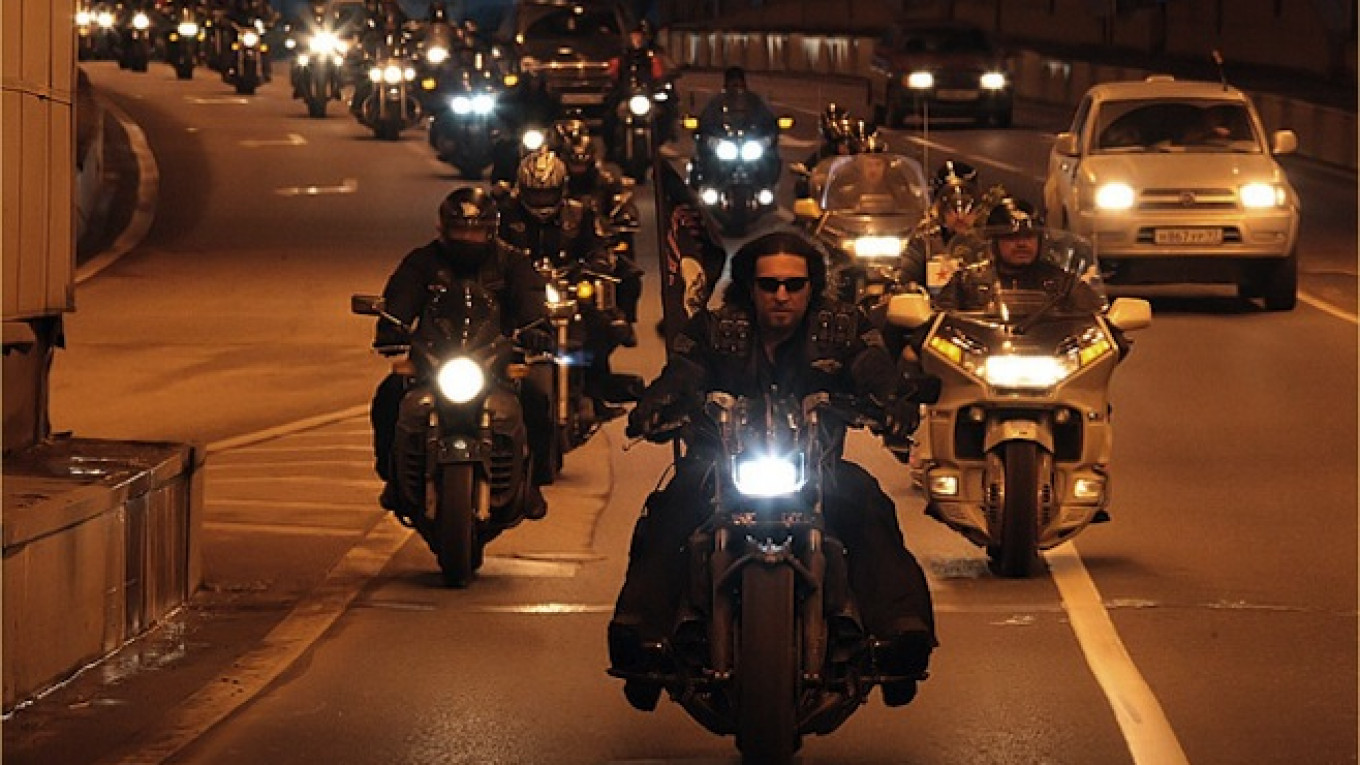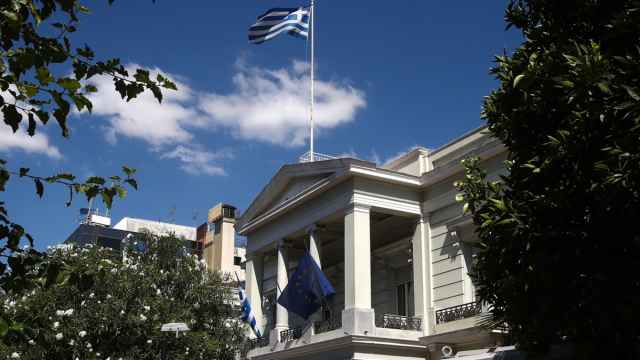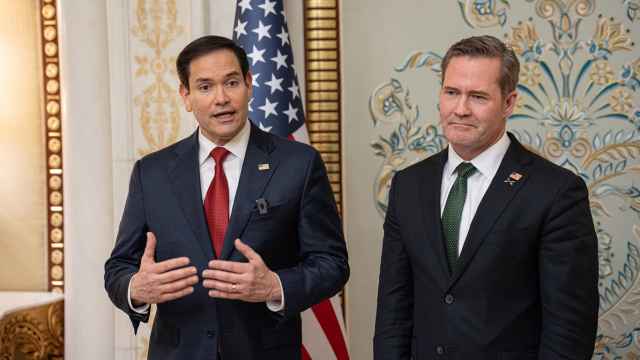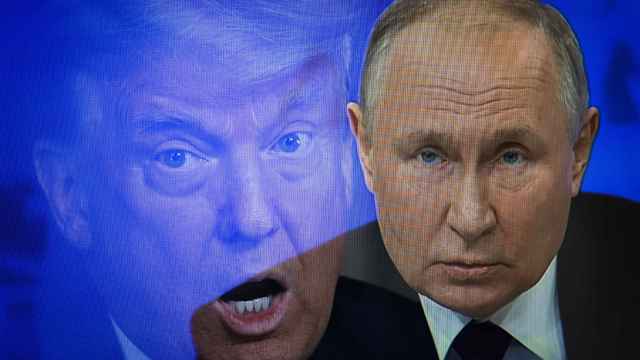Poland will not allow members of a Russian motorcycle club linked to President Vladimir Putin to cross its border and enter the European Union's territory, the Polish Foreign Ministry said Friday.
The decision is likely to put further strain on the bilateral relations, already damaged by Russia's role in the Ukraine crisis.
Some 50 members of the Night Wolves, a group blacklisted by the United States for taking part in Russia's annexation of Crimea, are taking part in a bike ride from Moscow to Berlin, commemorating the 70th anniversary of the end of World War II.
"The Foreign Ministry has passed a diplomatic note to the Russian Embassy in Warsaw … concerning a denial of entry to Poland to an organized group of motorcyclists, which included representatives of the Night Wolves club," the ministry said in a statement.
Ministry spokesman Marcin Wojciechowski told a news conference that Russia formally asked Poland last Monday to approve the motorcyclists' tour due to start on Saturday.
"I want to reassure you that the decision was not a political one, but based on formal considerations", he said, adding that Russia did not provide details on the planned route, accommodation or list of participants.
Leader of the motorcycling club Night Wolves Alexander Zaldostanov, who also goes by the nickname "Khirurg" (Surgeon), arrives at a news conference in Moscow April 15, 2015.
The ministry allowed three other Russian motorcyclists' groups to enter Poland, he added.
Wojciechowski said the Foreign Ministry was not in charge of regulating cross-border movement, but to his knowledge the Night Wolves had not applied for visas needed to enter Poland.
"In taking the decision, we consulted our German and Czech partners," he added.
The Night Wolves have strongly backed the pro-Russian separatists in Ukraine and the support for them shown by Putin, who rode with them in a 2011 motorcycle parade.
Earlier this month, the Polish Prime Minister said the ride was a provocation, adding that the final decision on the matter would be made by border control officials.
"If it was to disturb our security, put the Polish people in danger of distress, law is there to be used," she told private radio To FM.
The Russian Embassy in Warsaw was not immediately available for comment.
A Message from The Moscow Times:
Dear readers,
We are facing unprecedented challenges. Russia's Prosecutor General's Office has designated The Moscow Times as an "undesirable" organization, criminalizing our work and putting our staff at risk of prosecution. This follows our earlier unjust labeling as a "foreign agent."
These actions are direct attempts to silence independent journalism in Russia. The authorities claim our work "discredits the decisions of the Russian leadership." We see things differently: we strive to provide accurate, unbiased reporting on Russia.
We, the journalists of The Moscow Times, refuse to be silenced. But to continue our work, we need your help.
Your support, no matter how small, makes a world of difference. If you can, please support us monthly starting from just $2. It's quick to set up, and every contribution makes a significant impact.
By supporting The Moscow Times, you're defending open, independent journalism in the face of repression. Thank you for standing with us.
Remind me later.






